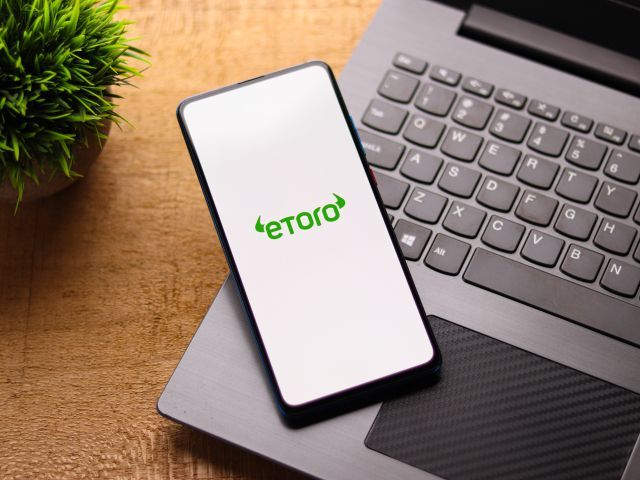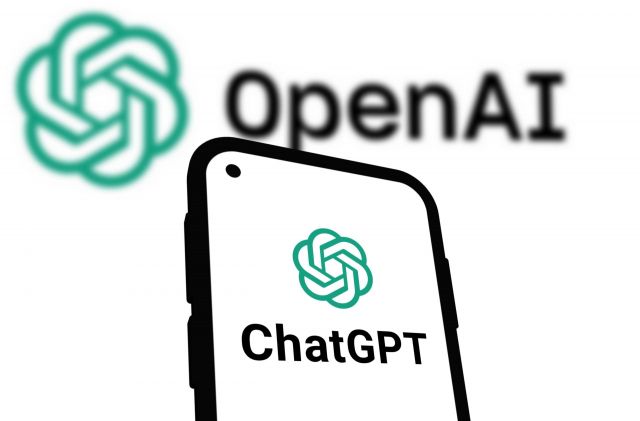BitGo IPO: how to trade BitGo shares

Create an account Open a demo account
When is the BitGo IPO date?
BitGo has launched its US initial public offering (IPO), moving beyond the planning stage into active deal marketing. The company has filed public registration documents with the US Securities and Exchange Commission (SEC) and disclosed indicative pricing terms for its offering.
According to IPO calendars and regulatory filings, the BitGo IPO is expected to price in the week of 19 January 2026, although the exact listing date has not been formally confirmed. BitGo intends to list on the New York Stock Exchange under the ticker BTGO.
The company’s IPO follows a long period of market speculation. In 2021, Galaxy Digital announced a proposed $1.2bn acquisition of BitGo, which was later terminated. After that deal collapsed, BitGo returned to private fundraising, securing $100m in 2023 at a valuation of around $1.75bn.
IPO deal terms and structure
Under the terms disclosed in its SEC filings, BitGo and certain existing shareholders plan to offer approximately 11.8 million Class A shares at an indicative price range of $15–$17 per share.
At the top end of the range, the deal implies a valuation of approximately $1.96bn, with gross proceeds of up to around $$201m.
The offering includes both:
- Primary shares – where proceeds go to BitGo to fund growth and operations
- Secondary shares – representing roughly 7% of the deal, which provide partial liquidity for early investors
Lead underwriters include Goldman Sachs and Citigroup, alongside a broader syndicate featuring Deutsche Bank, Wells Fargo Securities, Mizuho, Keefe Bruyette Woods, Canaccord Genuity , and Cantor Fitzgerald (Reuters, 12 January 2026).
Why list now?
- Regulatory clarity: progress in US custody frameworks and clearer institutional rules may improve operating visibility
- Liquidity for investors: hedge funds, asset managers and corporates continue to expand digital asset allocations, which can increase custody needs
- Institutional adoption: early backers may seek partial exits while retaining long-term exposure
- Growth capital: IPO proceeds can support international expansion, product development and regulatory investment
- Market window: profitable, infrastructure-focused crypto firms have begun returning to public markets
Market backdrop
After several muted years, global IPO activity rebounded through 2025, including listings from crypto-related firms such as Circle and Bullish. This shift suggests investors are again willing to back established digital asset businesses, particularly those with recurring revenue models.
Unlike trading-led platforms, custody and infrastructure providers are often viewed as more defensive within the crypto ecosystem. BitGo’s IPO positions it among the first major crypto custody listings of 2026, which means some market participants may treat it as an early indicator for the sector.
What is BitGo?
BitGo is a digital asset custody and infrastructure provider, offering secure storage, settlement , and financial services to institutional clients. Founded in 2013 by Mike Belshe and Ben Davenport, BitGo built its reputation on security-first design at a time when digital asset theft and exchange failures were widespread.
While historically associated with Silicon Valley, BitGo’s formal corporate headquarters is now in Sioux Falls, South Dakota, reflecting its regulated trust structure. The company also maintains offices in Palo Alto and other global locations.
Origins
Early crypto markets were marked by repeated security breaches. BitGo addressed this risk by pioneering multi-signature wallet technology, which requires multiple approvals to authorise transactions. This reduced single points of failure and helped establish industry standards.
The company later expanded into multi-party computation (MPC), further strengthening institutional-grade custody without exposing private keys.
Product suite
- Custody services: regulated, segregated custody for institutional clients.
- Wallet infrastructure: multi-sig and MPC wallets licensed to exchanges and asset managers.
- Settlement network: infrastructure supporting secure clearing and settlement.
- Prime services: trading, financing and lending integrated with custody.
- Staking solutions: institutional staking for proof-of-stake networks.
- Insurance coverage: custody backed by third-party insurance policies.
Customers and scale
BitGo serves hedge funds, exchanges, asset managers, family offices, and corporations globally. According to its filings, the platform supports approximately 4,600–4,900 institutional clients and held around $100bn–$104bn in assets under custody during late 2025, with fluctuations linked to crypto market prices.³
Global footprint
- Headquarters: Sioux Falls, South Dakota.
- Key offices: Palo Alto, New York, San Francisco, London, Frankfurt, Singapore, Seoul, Dubai, Canada, and India.
- Licensing: US trust entities and international regulatory registrations.
- Reach: institutional clients across North America, Europe and Asia-Pacific.
Key milestones
2013 – BitGo founded in California.
2015 – Launch of institutional multi-signature wallets.
2018 – Establishes BitGo Trust Company.
2021 – Proposed Galaxy Digital acquisition announced and later terminated.
2023 – $100m Series C funding at $1.75bn valuation (approximate).
2025 – Files confidential and then public S-1 registration statements.
2026 – Launches IPO process targeting NYSE listing under BTGO.
How does BitGo make money?
BitGo generates revenues by charging for custody, licensing its wallet technology, and providing ancillary services such as prime brokerage and staking.
| Revenue stream | Description |
|---|---|
| Custody fees | Fees charged for safeguarding assets under management, often a percentage of holdings. |
| Transaction fees | Revenues from processing withdrawals, settlements, and blockchain transactions. |
| Wallet services | Licensing fees for secure wallet infrastructure offered to institutions and platforms. |
| Prime services | Revenues from trading, lending, and financing integrated with custody. |
| Staking services | Percentage of staking rewards earned by institutional clients. |
While BitGo’s revenues remain linked to crypto market activity, custody fees provide a relatively stable base.
Financial performance
According to its IPO filings, BitGo reported multi-billion-dollar revenue on a gross basis for the 12 months ended 30 September 2025, largely driven by principal trading flows. The company also disclosed positive net income, with profits in the first three quarters of 2025 exceeding those of the prior year.³
What might influence the BitGo live stock price?
Although pricing terms are set, BitGo shares have not yet begun trading. Once listed, performance may be influenced by a combination of crypto market conditions, regulatory clarity, and execution of its growth strategy.
Macroeconomic and sector trends
Crypto valuations are influenced by global liquidity, interest rate cycles, and monetary policy. Bull markets in digital assets typically increase trading and custody demand, while bear markets compress volumes and revenues. Investors will weigh whether BitGo can demonstrate resilience in downturns by leaning on recurring custody income.
Company fundamentals
Key metrics for BitGo include assets under custody (AUC), number of institutional clients, revenues by segment, and profitability. Investors will monitor whether BitGo can expand its prime brokerage revenues, which carry higher margins than custody alone. Insurance coverage, regulatory compliance, and operational resilience will also be scrutinised.
Competition and differentiation
BitGo’s main rivals include Coinbase Custody, Fidelity Digital Assets, Anchorage Digital, Fireblocks, and Copper. Differentiation lies in its pioneering wallet technology, independent status, and strong regulatory base. However, traditional banks are entering custody, raising competitive pressure.
Regulation and governance
Custody is central to crypto regulation. BitGo’s ability to secure and maintain trust licenses, comply with MiCA in Europe, and adapt to Asian regulatory regimes will directly affect growth. As a public company, it will face heightened governance requirements, from board independence to financial disclosure.
Valuation scenarios
- Bull case: Crypto prices remain elevated, institutional adoption accelerates, and BitGo secures a higher valuation.
- Bear case: Crypto downturn reduces AUC, and investors discount BitGo as overly market-sensitive.
Investor sentiment
Investors will decide whether BitGo is primarily a crypto proxy or a fintech infrastructure provider. If framed as a ‘picks-and-shovels’ play benefiting regardless of token prices, multiples could expand. Comparisons will be drawn with Coinbase’s IPO, Robinhood’s debut, and fintech IPOs like Wise. Anchor investors, particularly long-only funds, will be critical to ensuring stability in early trading.
How to trade BitGo shares via CFDs
Once BitGo shares begin trading, traders may be able to gain exposure via contracts for difference (CFDs). CFDs allow speculation on price movements without owning the underlying shares.
How to get started
- Step 1: Choose a platform Use a broker such as Capital.com offering access to crypto-related IPOs.
- Step 2: Open a Capital.com account (Subject to ID verification and eligibility test).
- Step 3: Fund your account Deposit capital securely by card, bank transfer, or e-wallet.
- Step 4: Track IPO detailsFollow filing updates, offering price range, and investor demand.
- Step 5: Place a tradeGo long if you expect momentum, or short if you foresee a fall, applying stop-losses* for protection.
Note: the BitGo IPO, like all IPOs, may be volatile, especially in the early days of trading. CFDs let you act on price swings in either direction, but always apply risk management. CFDs are traded on margin, and leverage higher than 1:1 magnifies potential losses and gains. Past performance is not a reliable indicator of future results.
Learn more about contracts for difference in our CFDs trading guide.
*Standard stop-loss orders are not guaranteed. Guaranteed stop-loss orders (GSLOs) incur a fee when activated.
Which crypto and fintech stocks can I trade?
Before or alongside BitGo’s listing, traders may consider comparable listed companies:
- Coinbase (COIN) – crypto exchange and custody operator.
- Robinhood (HOOD) – fintech broker with strong crypto exposure.
- Block (SQ) – fintech company with a bitcoin services ecosystem.
- Riot Platforms (RIOT) – large US bitcoin miner.
- Marathon Digital (MARA) – one of the largest listed crypto mining firms.
These stocks can offer insight into investor sentiment towards digital asset businesses.
FAQ
Who owns BitGo?
BitGo is backed by investors including Goldman Sachs, Valor Equity Partners, Digital Currency Group, DRW and others.
What is BitGo worth?
The IPO price range implies a valuation of approximately $1.9–$2.0bn, subject to final pricing.
When will BitGo shares start trading?
The IPO is expected to price in the week of 19 January 2026, though the exact listing date has not been confirmed.
Is BitGo profitable?
BitGo reported positive net income in recent filings, supported by custody and trading-related revenues.
What does BitGo do?
BitGo provides digital asset custody, wallet technology, settlement infrastructure, prime services and staking for institutional clients.
What risks could affect BitGo after listing?
Risks include regulatory changes, competition, crypto market volatility, and operational or security challenges.
Discover more upcoming IPOs
Stay informed on upcoming IPOs, market trends, and the newest trading opportunities

eToro IPO
